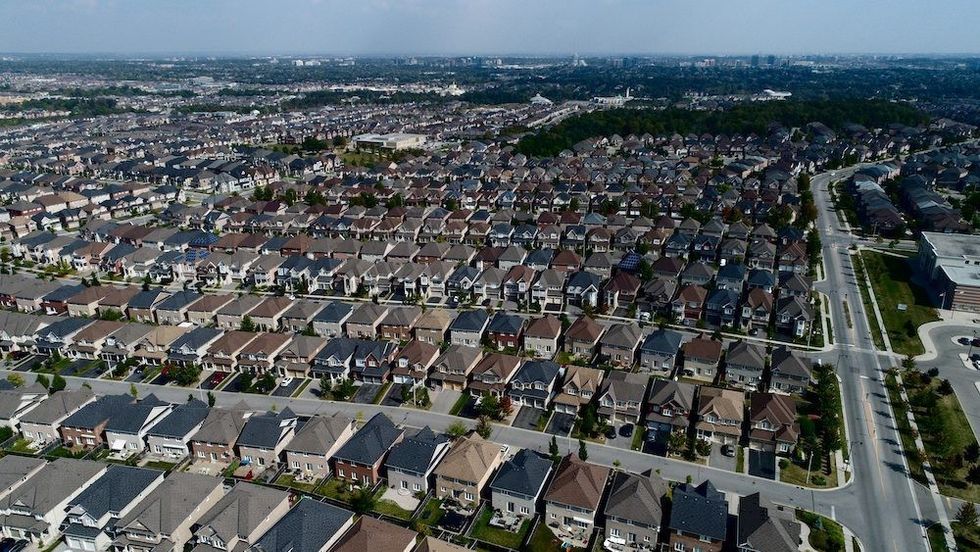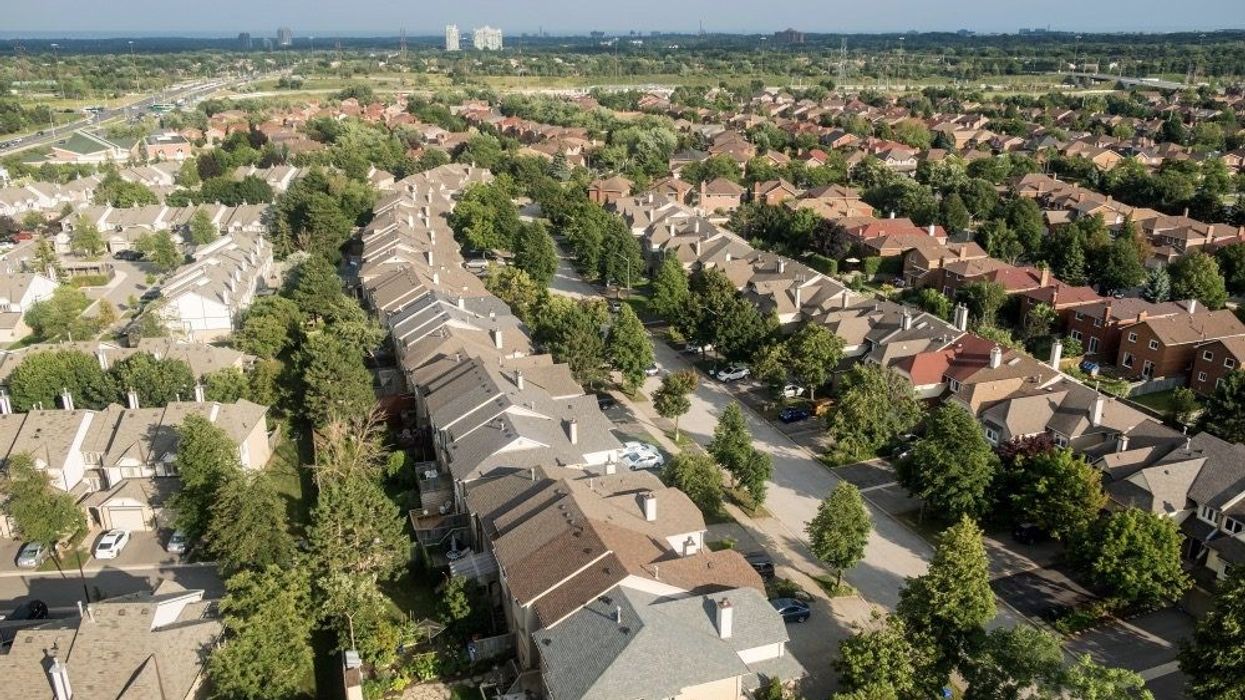In response to interest rate hikes and a softening of demand in parts of the country, Royal LePage has reduced its home price forecast to 5% in 2022.
This means that -- after a red-hot run that saw record-breaking prices in the past two years -- Canadian home prices will only grow 5% by the end of the year, compared to the fourth quarter of 2021. The price forecast has been revised downward from the previous quarter.
READ: Bank of Canada Announces Surprise 1% Hike, Largest Increase in 24 Years
With that said, home prices will still be above pre-pandemic norms from coast to coast (so don’t get too excited, would-be first-time homebuyers). It also doesn't mean that we can shift our focus from the creation of new supply, says Royal LePage.
According to Royal LePage’s most recent House Price Survey, the aggregate price of a home in Canada increased 12.1% year over year to $815,000 in the second quarter of 2022. On a quarterly basis, the aggregate home price has decreased by 4.9% in the second quarter after reaching record YoY highs in Q1.

In addition to perpetual interest rate hikes, a temporary drop in demand in parts of the pricier provinces of Ontario and British Columbia have prompted the real estate brokerage to reduce its Q4 2022 price forecast to 5%. With that said, home prices are expected hold through the reminder of 2022 in the greater regions of Toronto and Vancouver.
Meanwhile, the Greater Montreal Area expected to see continued price appreciation. Interprovincial migration -- something that accelerated during the pandemic -- to affordable real estate markets supported home price growth in Alberta, Prairies, and Atlantic Canada, highlights Royal LePage.
An uneven market recovery is expected as some regions experience continued price appreciation while others soften, predicts the brokerage.
"Some of the heat that was driving the market cooled during the quarter as rising interest rates coupled with economic uncertainty undermined consumer confidence and pushed buyers to the sidelines," said Phil Soper, president and CEO of Royal LePage. "We have significantly reduced our outlook for 2022, however home prices are still forecast to end the year higher than 2021 and well above pre-pandemic norms. Following record price gains across the country, numerous markets in southern Ontario and parts of Greater Vancouver -- specifically those that saw some of the highest price appreciation over the last two years -- experienced a second quarter decline. I expect this highly unusual downward movement in home values will be short-lived as the country's chronic housing shortage has not been resolved.”

Since 1980, there have only been seven instances of a three-month decline in resale home prices of 10% or more, with the most recent instance occurring in May 2022. Supporting the expectation that resale home prices will hold their value for the remainder of 2022 is continued household formation from peak millennials who are reaching traditional home-buying age, high levels of immigration, a healthy job market, and the high construction cost of new homes, says Royal LePage.
"Barring a sharp increase in the inventory of properties for sale in this country, which seems unlikely given our exceptionally low level of unemployment, growing population, and minuscule rate of mortgage default, we expect that the second quarter produced most of the price declines we will see this cycle," said Soper.
So, don't expect a dramatic bubble burst or an influx of new supply to solve the housing crisis. The brokerage cautions policy makers that growing inventory is masking an acute urgency to solve Canada's relentless housing supply crisis. There’s no time to wait on the creation of more supply, says Soper.
"Although demand has temporarily weakened, Royal LePage is concerned that this short-term reprise from rapidly rising home prices may cause decision makers to shift their attention to other issues, thinking Canada's housing supply crisis can wait -- it cannot," continued Soper. "The current market correction will create pent-up demand. A growing domestic buyer pipeline coupled with the need to house hundreds of thousands of new Canadians threatens to far outstrip the tepid pace of new home construction."
So, the familiar supply vs. demand narrative continues -- softening prices or not.





















